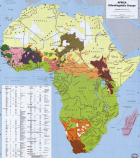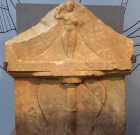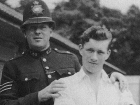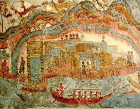Culture
The definitions of what is culture may change but the practice of understanding, and unpicking cultural history is an important dimension to understanding any historical period. In this section articles explore the way that definitions of culture have changed and how those changes have affected values and attitudes. The impact of the written word on fashions and ideas and the role of historic movements such as the renaissance are all addressed in this section.
Sort by:
Date (Newest first) | Title A-Z
Show:
All |
Articles |
Podcasts |
Multipage Articles
-

History Abridged: Language and the African continent
ArticleClick to view -

The Christian Kingdoms of Nubia and Ethiopia
ArticleClick to view -

Ancient Athenian inscriptions in public and private UK collections
ArticleClick to view -

My Favourite History Place: St James Church, Gerrards Cross
ArticleClick to view -

German universities under the Nazis
ArticleClick to view -

Real Lives: Harry Daley
ArticleClick to view -

My Favourite History Place - Barnard Castle
ArticleClick to view -

Grave matters
ArticleClick to view -

Architecture within the reach of all
ArticleClick to view -

A (non-Western) history of versatility
ArticleClick to view -

On Black Lives Matter
ArticleClick to view -

The emergence of the first civilisations
ArticleClick to view -

My Favourite History Place: The Red House
ArticleClick to view -

The amazing adventures of Pytheas the Greek
ArticleClick to view -

History Abridged: the Acropolis
ArticleClick to view -

Immigration and the making of British food
ArticleClick to view -

When was the post-war?
ArticleClick to view -

What is interesting about the interwar period?
ArticleClick to view -

Sparta and war: myths and realities
ArticleClick to view -

Britain and Brittany: contact, myth and history in the early Middle Ages
ArticleClick to view

